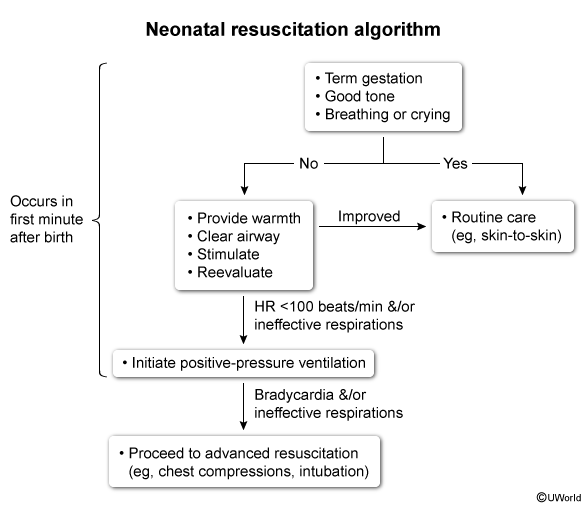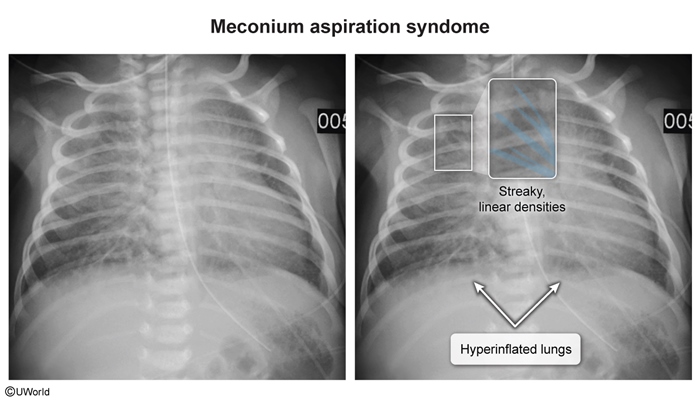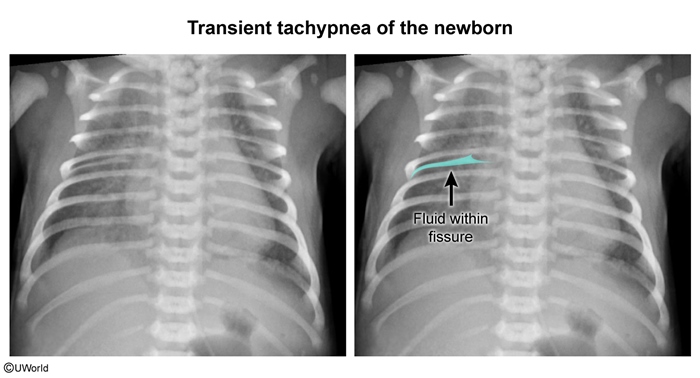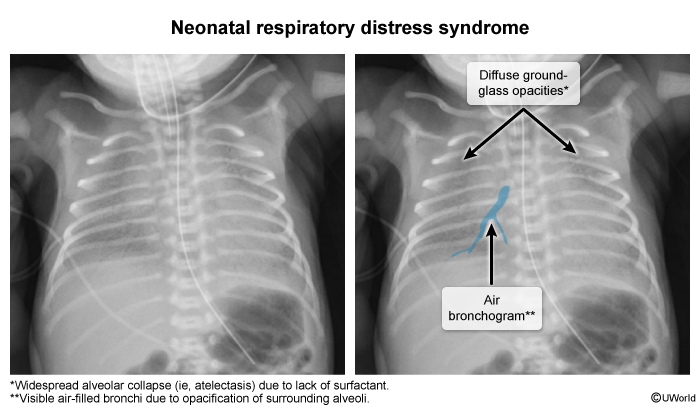Meconium Aspiration Syndrome
Article Sections
Introduction
Meconium aspiration syndrome (MAS) occurs in infants who aspirate meconium-stained amniotic fluid during or shortly after birth. Meconium causes bronchiolar obstruction and inflammation, which manifests clinically as respiratory distress.
Pathophysiology and risk factors
Meconium is a sterile substance (desquamated cells, mucin, and amniotic fluid) that accumulates in the fetal intestine during the late second and third trimesters. Normally, infants pass meconium within 24 hours. However, intrauterine passage of meconium can occur, most commonly due to fetal stress. Umbilical cord compression, for example, increases vagal tone, resulting in intestinal peristalsis, anal sphincter relaxation, and passage of meconium into the amniotic fluid. As a result, meconium can be aspirated before (eg, fetal gasping due to prolonged hypoxia), during, or immediately after birth. Once aspirated, meconium causes
Continue Learning with UWorld
Get the full Meconium Aspiration Syndrome article plus rich visuals, real-world cases, and in-depth insights from medical experts, all available through the UWorld Medical Library.
Unlock Full AccessFigures

Images


